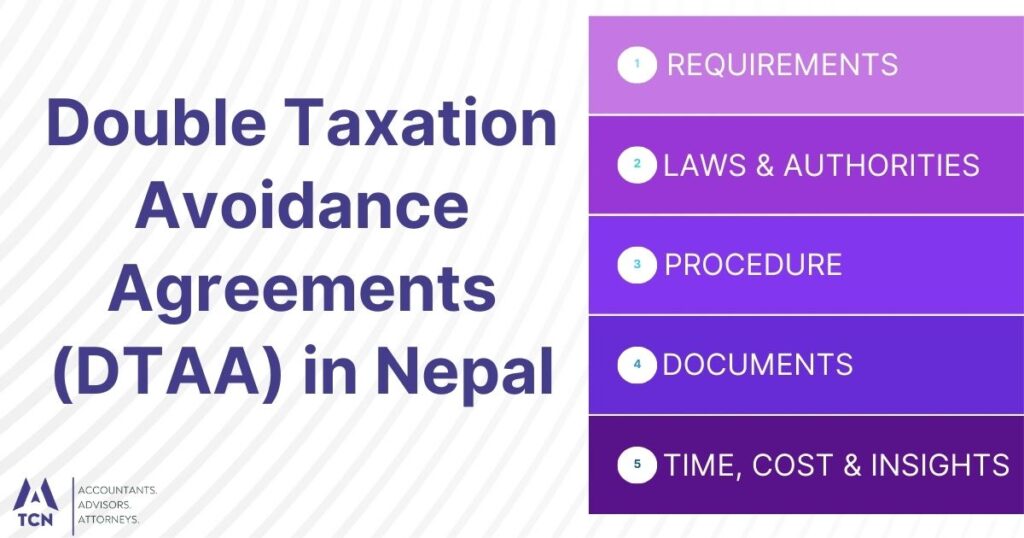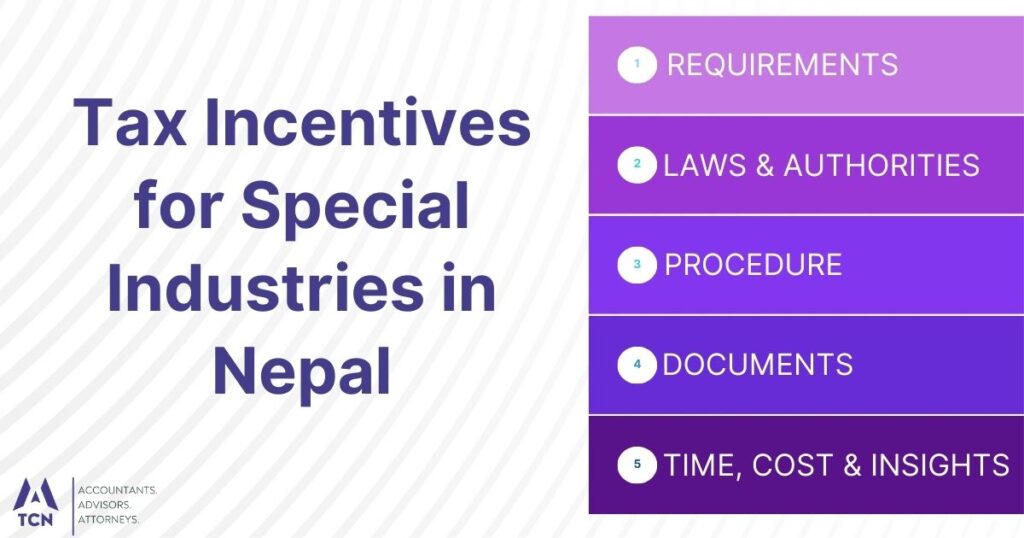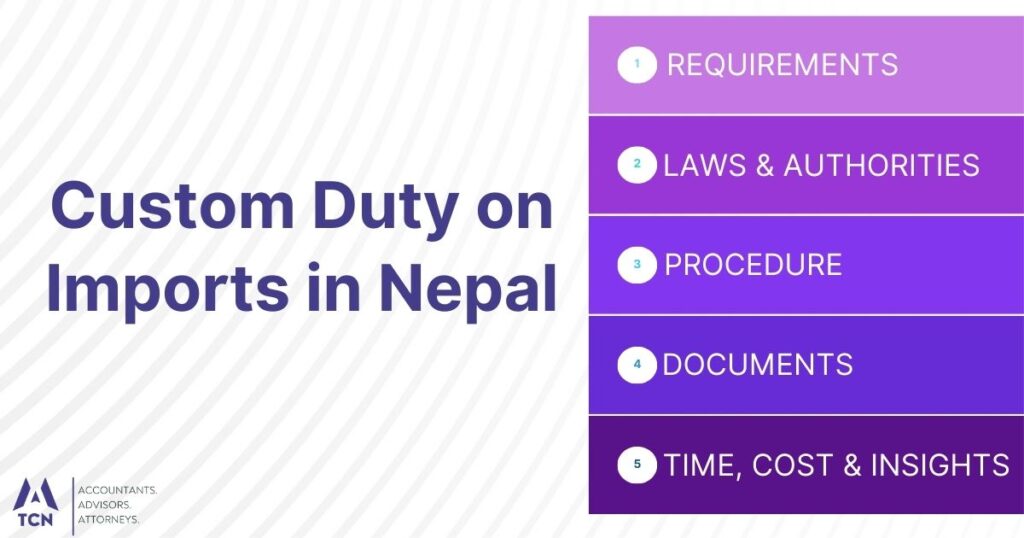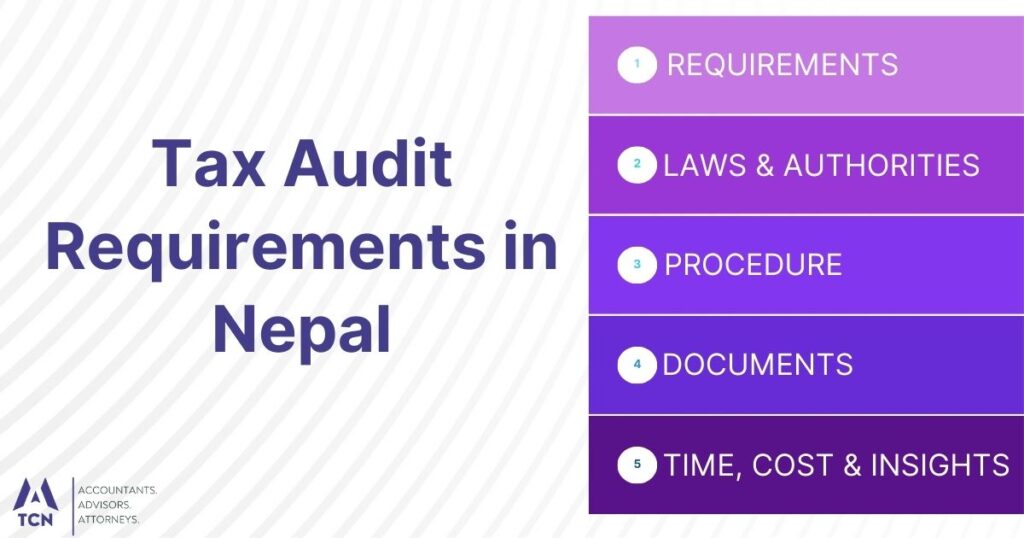Double Taxation Avoidance Agreements (DTAA) in Nepal

A Double Taxation Avoidance Agreement (DTAA) is a bilateral tax treaty between two countries designed to prevent individuals and businesses from paying taxes twice on the same income. These agreements aim to promote international trade and investment by eliminating the burden of double taxation on cross-border transactions. In Nepal, DTAAs play a crucial role in […]
Tax Incentives for Special Industries in Nepal

Tax incentives in Nepal are special provisions in the tax laws that offer reduced tax rates, exemptions, or other financial benefits to specific industries or businesses. These incentives aim to promote economic growth, attract investment, and support priority sectors in the country. Industries that typically qualify for tax incentives in Nepal include: The Income Tax […]
Custom Duty on Imports in Nepal

Custom duty is a tax imposed on goods imported into Nepal. It is a form of indirect tax collected by the Nepal Customs Department on behalf of the government. The primary purpose of custom duty is to generate revenue for the government and protect domestic industries from foreign competition. Importers of goods into Nepal are […]
Excise Duty Compliance in Nepal

Excise duty is an indirect tax levied on the production, sale, or consumption of specific goods in Nepal. The government imposes this tax on various products, primarily those considered luxury items, harmful to health, or environmentally impactful. The Excise Act, 2058 (2002) and Excise Duty Rules, 2059 (2003) govern the implementation of excise duty in […]
Tax Audit Requirements in Nepal

A tax audit in Nepal is a comprehensive examination of a taxpayer’s financial records, accounts, and tax returns by authorized tax authorities or certified auditors. The primary purpose of a tax audit is to verify the accuracy and completeness of tax declarations and ensure compliance with Nepal’s tax laws and regulations. In Nepal, various entities […]
Advance Tax Payments in Nepal

Advance tax in Nepal is a system of prepayment of income tax. It requires taxpayers to pay their estimated tax liability in installments throughout the fiscal year, rather than as a lump sum at the end. This system helps the government maintain a steady cash flow and reduces the burden on taxpayers of paying a […]
Taxation of Cross-Border Transactions in Nepal

Cross-border transactions, in the context of taxation, refer to economic activities that involve the movement of goods, services, capital, or intangible assets across international boundaries. These transactions are subject to specific tax regulations and often involve complex tax implications due to the interaction of different tax jurisdictions. In Nepal, cross-border transactions encompass various activities, including: […]
TDS (Tax Deducted at Source) Compliance in Nepal

Tax Deducted at Source (TDS) is a method of collecting income tax at the source of income generation in Nepal. It requires the payer to deduct a certain percentage of tax from payments made to recipients and remit it directly to the government. The responsibility for deducting TDS lies with the payer, who is also […]
Corporate Income Tax Filing in Nepal

Who is required to file corporate income tax? In Nepal, all registered companies, both domestic and foreign, are required to file corporate income tax. This includes: The Income Tax Act, 2058 (2002) mandates that any entity engaged in business activities or earning income in Nepal must file corporate income tax returns. This applies regardless of […]
VAT Registration and Compliance in Nepal

What is VAT and who needs to register? Value Added Tax (VAT) is an indirect tax levied on the consumption of goods and services in Nepal. The VAT Act 2052 (1996) governs the implementation of VAT in the country. VAT is collected at each stage of the production and distribution process, with the final consumer […]

